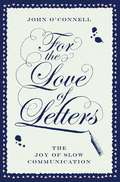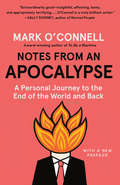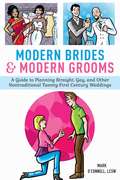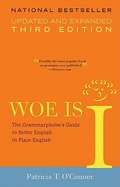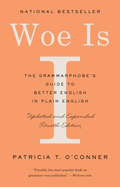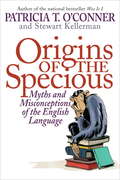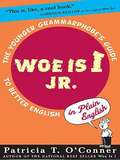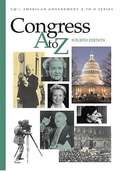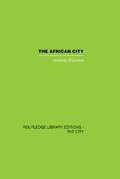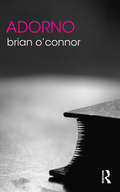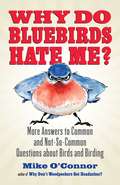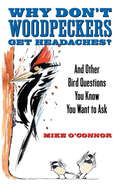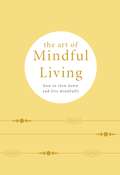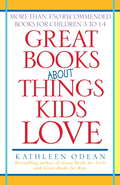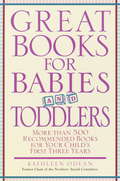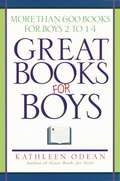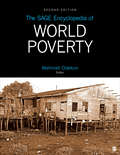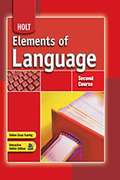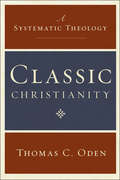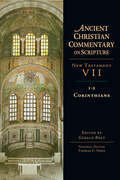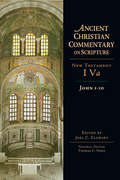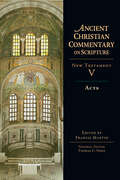- Table View
- List View
For the Love of Letters: The Joy of Slow Communication
by John O'ConnellRemember letters? They were good, weren't they? The thrill of receiving that battered envelope, all the better for the wait . . . In this richly entertaining book, paper geek John O'Connell puts forward a passionate case for the value of letter-writing in a distracted, technology-obsessed world. Drawing on great examples from the past, he shows that the best letters have much to teach us - Samuel Richardson's 'familiar letters'; Wilfred Owen's outpourings to his mother; the sly observational charms of Jane Austen. And in doing so he reminds us of the kind of letters we would all write if we had the time - the perfect thank-you letter, a truly empathetic condolence letter, and of course the heartfelt declaration of love. Was there a Golden Age of Letters? Why is handwriting so important? Can we ever regain the hallowed slowness of the pre-Twitter era? In answering these questions O'Connell shows how a proper letter is an object to be cherished, its crafting an act of exposure which gives shape and meaning to the chaos of life. *** 'The nib touches the paper. And instinctively I follow the old formula: address in top right-hand corner; date just beneath it on the left-hand side. My writing looks weird. I hand-write so infrequently these days that I've developed a graphic stammer - my brain's way of registering its impatience and bemusement. What are you doing? Just send an email! I haven't got all night . . .'
Notes from an Apocalypse: A Personal Journey to the End of the World and Back
by Mark O'Connell"Harrowing, tender-hearted, and funny as hell" —Jenny Offill&“Fascinating…Oddly uplifting&” —The Economist"Smart, funny, irreverent, and philosophically rich" —Wall Street JournalBy the author of the award-winning To Be a Machine, an absorbing, deeply felt book about our anxious present tense—and coming to grips with the futureWe're alive in a time of worst-case scenarios: The weather has gone uncanny. Old postwar alliances are crumbling. A pandemic draws our global community to a halt. Everywhere you look there's an omen, a joke whose punchline is the end of the world. How is a person supposed to live in the shadow of such a grim future? What does it mean to have children—nothing if not an act of hope—in such unsettled times? What might it be like to live through the worst? And what on Earth is anybody doing about it?Dublin-based writer Mark O'Connell is consumed by these questions—and, as the father of two young children himself, he finds them increasingly urgent. In Notes from an Apocalypse, he crosses the globe in pursuit of answers. He tours survival bunkers in South Dakota. He ventures to New Zealand, a favored retreat of billionaires banking on civilization's collapse. He engages with would-be Mars colonists, preppers, right-wing conspiracists. And he bears witness to those places, like Chernobyl, that the future has already visited—real-life portraits of the end of the world as we know it. In doing so, he comes to a resolution, while offering readers a unique window into our contemporary imagination.Both investigative and deeply personal, Notes from an Apocalypse is an affecting, humorous, and surprisingly hopeful meditation on our present moment. With insight, humanity, and wit, O'Connell leaves you to wonder: What if the end of the world isn't the end of the world?
Modern Brides & Modern Grooms
by Mark O'Connell Liza MonroyHow to make any wedding liberating, brave, and sexy.This post-DOMA book is for any couple-same or opposite sex-seeking a personalized wedding that dignifies the relationship and the individual self. No "new normal" here-this guide emboldens you to harness your unique, brazen, queer truth; to be creative; and to plan your wedding your way.Every fiancé faces the question: How do I become something new without losing myself? Using his own story-from how he and his husband connected via MTV's The Real World to the real world of their marriage-author Mark O'Connell reflects on conflicts that arrive during wedding transitions, as well as various other transitions throughout your lives.As a psychotherapist, O'Connell offers ideas to bridge relational gaps with your partner, family, and friends. As a professional actor, he also offers insight into the ways your wedding is a theatrical production: how this can help you to conceptualize the event, consolidate your efforts, and increase creative collaboration as a couple. This will serve you not only on the day, but also for the rest of your time together.Whether we're straight, gay, or other, weddings inspire us to carve out more fun, freedom, recognition, life-space, love-space, and connubial space than we've ever had before.
Woe Is I: The Grammarphobe's Guide to Better English in Plain English(Third Edition)
by Patricia T. O'ConnerIn this new edition of Woe Is I, Patricia T. O'Conner unties the knottiest grammar tangles and displays the same lively humor that has charmed and enlightened grateful readers for years. With new chapters on spelling and punctuation, and fresh insights into the rights, wrongs, and maybes of English grammar and usage, Woe Is I offers down-to-earth explanations and plain-English solutions to the language mysteries that bedevil all of us: * Avoid the persistent (and persistently embarrassing) grammatical errors that bewilder the best andthe brightest * Pronounce and spell words that even the smartest people mangle * Correctly use hundreds of woefully abused words and phrasesFrom the Trade Paperback edition.
Woe Is I: The Grammarphobe's Guide to Better English in Plain English (Fourth Edition)
by Patricia T. O'ConnerA revised and updated edition of the iconic grammar guide for the 21st century.In this expanded and updated edition of Woe Is I, former editor at The New York Times Book Review Patricia T. O'Conner unties the knottiest grammar tangles with the same insight and humor that have charmed and enlightened readers of previous editions for years. With fresh insights into the rights, wrongs, and maybes of English grammar and usage, O'Conner offers in Woe Is I down-to-earth explanations and plain-English solutions to the language mysteries that bedevil all of us."Books about English grammar and usage are... never content with the status quo," O'Conner writes. "That's because English is not a stay-put language. It's always changing--expanding here, shrinking there, trying on new things, casting off old ones... Time doesn't stand still and neither does language."In this fourth edition, O'Conner explains how the usage of an array of words has evolved. For example, the once-shunned "they," "them," and "their" for an unknown somebody is now acceptable. And the battle between "who" and "whom" has just about been won, O'Conner says (hint: It wasn't by "whom"). Then there's the use of "taller than me" in simple comparisons, instead of the ramrod-stiff "taller than I." "May" and "might," "use to" and "used to," abbreviations that use periods and those that don't, and the evolving definition of "unique" are all explained here by O'Conner. The result is an engaging, up-to-date and jargon-free guide to every reader's questions about grammar, style, and usage for the 21st century.
Woe Is I
by Patricia T. O'ConnerIn this new edition of Woe Is I, Patricia T. O'Conner unties the knottiest grammar tangles and displays the same lively humor that has charmed and enlightened grateful readers for years. With new chapters on spelling and punctuation, and fresh insights into the rights, wrongs, and maybes of English grammar and usage, Woe Is I offers down-to-earth explanations and plain-English solutions to the language mysteries that bedevil all of us: Avoid the persistent (and persistently embarrassing) grammatical errors that bewilder the best and the brightest Pronounce and spell words that even the smartest people mangle Correctly use hundreds of woefully abused words and phrases
Origins of the Specious
by Patricia T. O'Conner Stewart KellermanDo you cringe when a talking head pronounces "niche" as NITCH? Do you get bent out of shape when your teenager begins a sentence with "and"? Do you think British spellings are more "civilised" than the American versions? If you answered yes to any of those questions, you're myth-informed. In Origins of the Specious, word mavens Patricia T. O'Conner and Stewart Kellerman reveal why some of grammar's best-known "rules" aren't--and never were--rules at all. This playfully witty, rigorously researched book sets the record straight about bogus word origins, politically correct fictions, phony français, fake acronyms, and more. Here are some shockers: "They" was once commonly used for both singular and plural, much the way "you" is today. And an eighteenth-century female grammarian, of all people, is largely responsible for the all-purpose "he." From the Queen's English to street slang, this eye-opening romp will be the toast of grammarphiles and the salvation of grammarphobes. Take our word for it.
Woe is I Jr.
by Patricia T. O'Conner Tom StiglichAs Patricia T. O?Conner proved in the original Woe Is I, a national bestseller, grammar can be entertaining and easy to understand. And now she?s made it fun for middle-graders. With funny chapters like ?Incredible Shrinking Words,? silly poems about meatballs, and examples that reference Shrek and earwax jelly beans, kids will know this isn?t a dry, boring reference book. Instead, conversational language and humorous examples painlessly illuminate the rules of the English language. Like a humorous Strunk and White for 4th through 8th graders, this is destined to become a must-have for every English classroom and student.
Congress A to Z
by Ann O'Connor David R. TarrFrom the "Abscam scandal" to "zone whips," this encyclopedia contains some 250 entries describing institutions, personalities, processes, and events related to the U.S. Congress. The material was updated to take into account events through mid- 2003 and was written to be understandable at a high school level. A series of appendices provide information on congressional leaders, minority members, cases of expulsion and censure, party affiliations, salaries, and other topics. Annotation (c)2003 Book News, Inc., Portland, OR (booknews.com)
The African City
by Anthony O'ConnorThis book explores various characteristics of tropical African cities, with special reference to change in the post-independence period. It stresses the diversity of urban forms and urban experience to be found within the region, distinguishing the more general features from those peculiar to individual cities. Much has been written about urban Africa, but nearly all relates to particular cities: this book provides a context for such studies. This review provides an essential foundation both for theoretical clarification of the processes of urbanization and for practical planning decisions. The topics covered range from rural-urban migration and national urban systems to the urban economy, housing , and the spatial structure of cities. The sharp contrasts between indigenous and colonial urban traditions are emphasized, but so also is the evidence for convergence today, as indigenization takes place in the colonial cities while Westernization proceeds ini those of indigenous origin. This book was first published in 1983.
Adorno: Philosophy And The Possibility Of Critical Rationality (The Routledge Philosophers)
by Brian O'ConnorTheodor W. Adorno (1903-69) was one of the foremost philosophers and social theorists of the post-war period. Crucial to the development of Critical Theory, his highly original and distinctive but often difficult writings not only advance questions of fundamental philosophical significance, but provide deep-reaching analyses of literature, art, music sociology and political theory. In this comprehensive introduction, Brian O’Connor explains Adorno’s philosophy for those coming to his work for the first time, through original new lines of interpretation. Beginning with an overview of Adorno’s life and key philosophical views and influences, which contextualizes the intellectual environment in which he worked, O’Connor assesses the central elements of Adorno’s philosophy. He carefully examines Adorno’s distinctive style of analysis and shows how much of his work is a critical response to the various forms of identity thinking that have underpinned the destructive forces of modernity. He goes on to discuss the main areas of Adorno’s philosophy: social theory, the philosophy of experience, metaphysics, morality and aesthetics; setting out detailed accounts of Adorno’s notions of the dialectic of Enlightenment, reification, totality, mediation, identity, nonidentity, experience, negative dialectics, immanence, freedom, autonomy, imitation and autonomy in art. The final chapter considers Adorno’s philosophical legacy and importance today. Including a chronology, glossary, chapter summaries, and suggestions for further reading, Adorno is an ideal introduction to this demanding but important thinker, and essential reading for students of philosophy, literature, sociology and cultural studies.
Why Do Bluebirds Hate Me?: More Answers to Common and Not-So-Common Questions about Birds and Birding
by Mike O'ConnorA collection of humorous Q&As about everything you've always wanted to ask about birds and birding Mike O'Connor knows bird watchers as well as he knows birds. He knows that if you're even slightly interested in identifying birds or attracting them to your backyard with a feeder, then you've also had your share of strange and silly questions about birds and their sometimes inexplicable behavior. In Why Do Bluebirds Hate Me?, O'Connor applies his deep knowledge of all things avian to answer the questions that keep birders up at night. Questions like · Should you clean your birdhouses? · Do swallows have a feather fetish? · How much does it cost to run a heated birdbath? · Is drinking coffee bad for birds? Other questions O'Connor covers range from the practical (Should I rotate the seed in my feeder?) to the quirky (Why are vultures eating my vinyl screen door?) to the just plain adorable (Are those birds kissing or feeding each other?). And he also explains why bluebirds just don't seem to like some people.From the Trade Paperback edition.
Why Don't Woodpeckers Get Headaches?
by Mike O'ConnorIn 1983, Mike O'Connor opened the Bird Watcher's General Store on Cape Cod, which might well have been the first store devoted solely to birding in the United States. Since that time he has answered thousands of questions about birds, both at his store and while walking down the aisles of the supermarket. The questions have ranged from inquiries about individual species ("Are flamingos really real?") to what and when to feed birds ("Should I bring in my feeders for the summer?") to the down-and-dirty specifics of backyard birding ("Why are the birds dropping poop in my pool?"). Answering the questions has been easy; keeping a straight face has been hard.Why Don't Woodpeckers Get Headaches? is the solution for the beginning birder who already has a book that explains the slight variation between Common Ground-Doves and Ruddy Ground-Doves but who is really much more interested in why birds sing at 4:30 A.M. instead of 7:00 A.M., or whether it's okay to feed bread to birds, or how birds rediscover your feeders so quickly when you've just filled them after a long vacation. Or, for that matter, whether flamingos are really real.
The Art of Mindful Living: How to Slow Down and Live Mindfully
by Octopus BooksMindful is about fully appreciating life's little pleasures and the most precious of moments that, all too often, pass by unnoticed when the mind is distracted.Though it seems like a paradox, slowing down to focus on one thing at a time and resisting the urge to multi-task can actually make us more productive by allowing us to deliberately concentrate our energy on our most important tasks. Likewise, mindful living also helps us be more aware of our thought patterns so that we can cultivate inner peace and appreciate the beauty in our day to day lives.This little collection of tips, inspirational quotes and reflections will help you find new strategies to:- stay focused and resist the urge to multitask,- take a few minutes to meditate and recentre yourself,- create a calming environment,- appreciate the beauty around you,- be more patient,- and manage your emotions to cultivate inner peace.This book will show you just how impactful it can be to take a few short moments to calm your mind and will ultimately help live a more peaceful and focused life.
Great Books About Things Kids Love: More Than 750 Recommended Books for Children 3 to 14
by Kathleen OdeanOdean, a children's librarian who is chair of the 2002 Newbery Award committee, realized that children especially love stories about their favorite subjects. She's created this guide for adults to help children get the books they want, with a synopsis and publication information provided for each title. Annotation c. Book News, Inc. , Portland, OR (booknews. com)
Great Books for Babies and Toddlers
by Kathleen Odean"The ideal time to begin sharing books with children is during babyhood, even with children as young as six weeks."--Starting Out Right National Research CouncilAll parents hope to give their children the best possible start in life. Many of them know it's a good idea to read to their children at a very young age, not with the goal of teaching their kids to read, but with the joy of having special time together looking at pictures and playing with words. Carefully chosen books that introduce children to the pleasures of language, simple story structure, and wonderful artwork are the foundation for a future love of books.Great Books for Babies and Toddlers is the first book of its kind--a guide to the best age appropriate children's books available. Compiled by Kathleen Odean, former Chair of the Newbery Award Committee, Great Books for Babies and Toddlers provides lively annotations for more than five hundred books, divided into two helpful categories: Nursery Rhymes, Fingerplays, and Songs; and Picture-Story Books for the Very Young.With story selections ranging from such classics of children's literature as Goodnight Moon and Where's Spot? to excellent new books like How Does a Dinosaur Say Good Night? and Buzz!, Great Books for Babies and Toddlers will be more than a cherished guide for parents--it will also be a child's first step in the lifelong adventure of reading.From the Trade Paperback edition.
Great Books for Boys
by Kathleen OdeanBOOKS THAT WILL MAKE BOYS WANT TO READ! Parents, grandparents, teachers, and librarians--we need a tool that guides us to the books that will inspire boys to read and keep them coming back for more. Now Kathleen Odean, a former member of the Caldecott and Newbery Award committees and author of the groundbreaking bestseller Great Books for Girls has compiled and annotated a unique collection of more than six hundred books--picture books, novels, mysteries, biographies, sports books, and more--that will fascinate and educate boys. Here are classic characters such as Frog and Toad, Bilbo Baggins, and Encyclopedia Brown; new favorites such as Bingo Brown, Martin the Warrior, and Harry the Dirty Dog; and real-life inspirations such as the Wright brothers, Jackie Robinson, and Jacques Cousteau. The boys who discover reading from the books in this invaluable volume will witness a wide range of role models--and embark upon an adventure that will fuel their dreams for the rest of their lives.
The SAGE Encyclopedia of World Poverty
by Mehmet A. OdekonThe SAGE Encyclopedia of World Poverty, Second Edition addresses the persistence of poverty across the globe while updating and expanding the landmark work, Encyclopedia of World Poverty, originally published in 2006 prior to the economic calamities of 2008. For instance, while continued high rates of income inequality might be unsurprising in developing countries such as Mexico, the Organization of Economic Co-operation and Development (OECD) reported in May 2013 even countries with historically low levels of income inequality have experienced significant increases over the past decade, including Denmark, Sweden, and Germany. The U.N. and the World Bank also emphasize the persistent nature of the problem. It is not all bad news. In March 2013, the Guardian newspaper reported, “Some of the poorest people in the world are becoming significantly less poor, according to a groundbreaking academic study which has taken a new approach to measuring deprivation. The report, by Oxford University’s poverty and human development initiative, predicts that countries among the most impoverished in the world could see acute poverty eradicated within 20 years if they continue at present rates.” On the other hand, the U.N. says environmental threats from climate change could push billions more into extreme poverty in coming decades. All of these points lead to the need for a revised, updated, and expanded edition of the Encyclopedia of World Poverty. Key Features: 775 evaluated and updated and 175 entirely new entries New Reader’s Guide categories Signed articles, with cross-references Further Readings will be accompanied by pedagogical elements Updated Chronology, Resource Guide, Glossary, and thorough new Index The SAGE Encyclopedia of World Poverty, Second Edition is a dependable source for students and researchers who are researching world poverty, making it a must-have reference for all academic libraries.
The SAGE Encyclopedia of World Poverty
by Mehmet A. OdekonThe SAGE Encyclopedia of World Poverty, Second Edition addresses the persistence of poverty across the globe while updating and expanding the landmark work, Encyclopedia of World Poverty, originally published in 2006 prior to the economic calamities of 2008. For instance, while continued high rates of income inequality might be unsurprising in developing countries such as Mexico, the Organization of Economic Co-operation and Development (OECD) reported in May 2013 even countries with historically low levels of income inequality have experienced significant increases over the past decade, including Denmark, Sweden, and Germany. The U.N. and the World Bank also emphasize the persistent nature of the problem. It is not all bad news. In March 2013, the Guardian newspaper reported, “Some of the poorest people in the world are becoming significantly less poor, according to a groundbreaking academic study which has taken a new approach to measuring deprivation. The report, by Oxford University’s poverty and human development initiative, predicts that countries among the most impoverished in the world could see acute poverty eradicated within 20 years if they continue at present rates.” On the other hand, the U.N. says environmental threats from climate change could push billions more into extreme poverty in coming decades. All of these points lead to the need for a revised, updated, and expanded edition of the Encyclopedia of World Poverty. Key Features: 775 evaluated and updated and 175 entirely new entries New Reader’s Guide categories Signed articles, with cross-references Further Readings will be accompanied by pedagogical elements Updated Chronology, Resource Guide, Glossary, and thorough new Index The SAGE Encyclopedia of World Poverty, Second Edition is a dependable source for students and researchers who are researching world poverty, making it a must-have reference for all academic libraries.
Elements of Language, Second Course
by Lee Odell Richard Vacca Renee Hobbs Judith L. Irvin John E. WarrinerThis book is a student's guide to the language arts skills and strategies that helps to read, write,create and analyze presentations or media messages.
Classic Christianity
by Thomas C. OdenFor the first time, Thomas Oden's Systematic Theology classic series (individually titled The Living God, The Word of Life, and Life in the Spirit) is available in one complete volume. A renowned theologian, Oden provides a consensus view of the Christian faith, delving deeply into ancient Christian tradition and bringing to the contemporary church the best wisdom from its past. In this magisterial work, Oden tackles the central questions of Christian belief and the nature of the trinity. Written for clergy, Christian educators, religious scholars, and lay readers alike, Classic Christianity provides the best synthesis of the whole history of Christian thought. Part one explores the most intriguing questions of the study of God--Does God exist? Does Jesus reveal God? Is God personal, compassionate, free?--and presents answers that reflect the broad consensus culled from the breadth of the church's teachers. It is rooted deeply and deliberately in scripture but confronts the contemporary mind with the vitality of the Christian tradition. Part two addresses the perplexing Christological issues of whether God became flesh, whether God became Christ, and whether Christ is the source of salvation. Oden details the core beliefs concerning Jesus Christ that have been handed down for the last two hundred decades, namely, who he was, what he did, and what that means for us today. Part three examines how the work of God in creation and redemption is being brought to consummation by the Holy Spirit in persons, through communities, and in the fullness of human destiny. Oden's magisterial study not only treats the traditional elements of systematical theology but also highlights the foundational exegetes throughout history. Covering the ecumenical councils and early synods; the great teachers of the Eastern church tradition, including Athanasius and John Chrysostom; and the prominent Western figures such as Augustine, Ambrose, Thomas Aquinas, Martin Luther, and John Calvin, this book offers the reader the fullest understanding of the Christian faith available.
Classic Christianity
by Thomas C. OdenFor the first time, Thomas Oden's Systematic Theology classic series (individually titled The Living God, The Word of Life, and Life in the Spirit) is available in one complete volume. A renowned theologian, Oden provides a consensus view of the Christian faith, delving deeply into ancient Christian tradition and bringing to the contemporary church the best wisdom from its past. In this magisterial work, Oden tackles the central questions of Christian belief and the nature of the trinity. Written for clergy, Christian educators, religious scholars, and lay readers alike, Classic Christianity provides the best synthesis of the whole history of Christian thought. Part one explores the most intriguing questions of the study of God--Does God exist? Does Jesus reveal God? Is God personal, compassionate, free?--and presents answers that reflect the broad consensus culled from the breadth of the church's teachers. It is rooted deeply and deliberately in scripture but confronts the contemporary mind with the vitality of the Christian tradition. Part two addresses the perplexing Christological issues of whether God became flesh, whether God became Christ, and whether Christ is the source of salvation. Oden details the core beliefs concerning Jesus Christ that have been handed down for the last two hundred decades, namely, who he was, what he did, and what that means for us today. Part three examines how the work of God in creation and redemption is being brought to consummation by the Holy Spirit in persons, through communities, and in the fullness of human destiny. Oden's magisterial study not only treats the traditional elements of systematical theology but also highlights the foundational exegetes throughout history. Covering the ecumenical councils and early synods; the great teachers of the Eastern church tradition, including Athanasius and John Chrysostom; and the prominent Western figures such as Augustine, Ambrose, Thomas Aquinas, Martin Luther, and John Calvin, this book offers the reader the fullest understanding of the Christian faith available.
1-2 Corinthians: New Testament (Ancient Christian Commentary on Scripture #7)
by Thomas C. Oden Gerald BrayPaul's letters to the Corinthian church have left a mark on Christian Scripture in a way that could never have been predicted. Here the pastoral issues of a first-century Christian community in what Chrysostom identified as "still the first city in Greece" stand out in bold relief. How was a community shaped by the cross to find its expression in a city that Chrysostom knew to be "full of orators and philosophers" and that "prided itself . . . above all on its great wealth"? How was church unity to be maintained in a setting where prominent believers, bending truth and morality to their own advantage, divided the body of Christ? Here lay the challenge for the apostle Paul. And as the apostle writes, the fathers lean over his shoulder, marveling and commenting on his pastoral wisdom. Best known among these patristic commentators is Chrysostom, whose seventy-seven homilies on the two Corinthian epistles are a treasury of exposition and application. The fragmentary works of Didymus the Blind and Severian of Gabala give us samples of Greek exegesis from the Alexandrian and Antiochene schools. The partial work of Theodore of Mopsuestia, a commentator of great skill and insight, was long valued in the church. And the comments of Theodoret of Cyrus are notable for their sensitivity to the intertextuality of Scripture. Then there are Origen and Pelagius, whose names resonate with notable error, to the needless obscuring of their brilliant insights into Scripture. But pride of place goes to the unknown fourth-century commentator long mistaken for Ambrose and now dubbed "Ambrosiaster." His excellent commentary on 1 and 2 Corinthians has been unavailable in English translation, and for that reason it is excerpted more generously in this volume. This Ancient Christian Commentary on 1-2 Corinthians opens a whole new way of reading these New Testament texts. The pastoral and theological interpretation of the fathers offers spiritual and intellectual sustenance to those who would read Paul again with open minds and hearts. Here we find the Pauline wisdom of the cross generating an effective heritage of Christian interpretation.
John 1-10 (Ancient Christian Commentary on Scripture #Nt Volume 4a)
by Thomas C. Oden Joel C. ElowskyHomilies on John,
Acts (Ancient Christian Commentary on Scripture #5)
by Thomas C. Oden Francis Martin Evan SmithHomilies on the Acts of the Apostles,Commentary on the Acts of the ApostlesCatena in Acta SS. Apostolorum.
